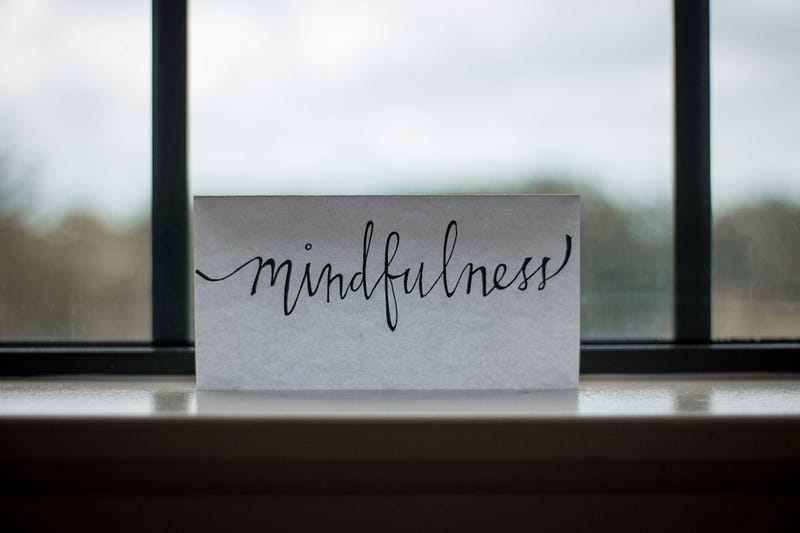3 Tips For A Meaningful Mindful Life
Merging critical thinking, and intuition.

Ioften speak of the Wisdom Path. This is a way of living that merges critical thinking, mindfulness, game theory, and intuition.
I apply this way of thinking to my investing strategies, self-improvement, and even mindfulness.
The Wisdom Path is a Post Digital Wisdom App installed in a “Human Main Frame” fuelled by love and compassion.
Like any App, you cannot create a life of wisdom without rules. These need not be dogmatic rules in the religious sense of the word but they must be specific. At some point, in most games, one or more players (depending on the rules of the game) will win. On a Wisdom Path, you win by living fully with no desire to win. It is a winless win for seeing your daily Practice as a way to be in the world but not of the world. An attachment to winning the game guarantees that you lose.
A “Game” approach to living can be applied to simple interactions — a game of checkers — to choices concerning business, and of course, with your spiritual life. This approach to life and living can radically shift your perspective on everything you do and experience.
In my teaching of this work, in the first decade of the 21st century, I have found that individuals over the age of thirty have a difficult time understanding what I am speaking of when I describe life as a game. Some are even offended. “Death is not a game”, they protest. I was fascinated by this and spoke to pre-teens (tweens) as well as technology experts concerning the fact that young people understood what I was describing while their elders did not. What I learned was that for a younger person, the idea of life as a game is obvious because so much of life for these people is built around a game-based system of seeing the world — what has come to be known as Apps. Life is just another App like “Pokemon Go”.
The Tetris Effect and the Wisdom App
The Tetris Effect is an unusual mental state named after Tetris, a popular video game of the 1990s. Many of those who played Tetris described the tendency to experience after-images of the game for days. They claimed that images and forms would in a four-square effect and often feel the need to determine how the things within these four squares all fit together. Researchers heard about this and explored how people who played Tetris for a prolonged amount of time might find themselves thinking about ways different shapes in the real world might fit together, such as the boxes on a supermarket shelf or buildings on a street.
It became clear to these researchers that when people devote sufficient time and attention to an activity, it begins to overshadow their thoughts, mental images, and dreams. This is exactly the purpose of the Wisdom Practice — to overshadow thoughts, mental images, and dreams but with clarity of thought. The Tetris Effect and the way individuals interact with each other in the digital world can be important tools for the student of the Wisdom Path. A person used to a world of digital Apps and online social interactions might also be taught to see the world through the lens of the five pillars as a video game player might experience the Tetris Effect. We now know that one need not play video games to experience the Tetris Effect. The Tetris Effect can act on anyone involved with any prolonged visual task including ironing, mowing the lawn, and creative visualization in meditation. Many of these acts are also connected to the state of “flow” a unique psychological state.
I have always had an interest in addressing mental and emotional obstacles to the Wisdom Path. This new research has shown that any activity that can create the Tetris effect, including Tetris-like video games, may help prevent the development of traumatic memories. If the video game treatment is played soon after the traumatic event, the almost hypnotic preoccupation with Tetris shapes is enough to prevent the mental recitation of traumatic images. The physical absorption of these energetic images often known as sense or cellular memory decreases the accuracy, intensity, and frequency of traumatic memories.
Many experts believe that these Tetris-like practices may interfere with the way sensory memories are laid down in the period after trauma reducing the number of flashbacks that are experienced afterwards. It seems that seeing, hearing, and feeling the world through these prolonged visual tasks may create a mental environment where trauma can be prevented from taking hold and may even free an individual from unbalanced repetitive cultural patterns. This is an important breakthrough for the individual seeking to live a spiritual life within the new digital reality and should not be minimized.
This story is an excerpt from my course “The Mystic’s Academy”
©Lewis Harrison, all rights reserved.
Before you go…
I am Lewis Harrison, a successful entrepreneur, and advisor to philanthropists. I am also the award-winning author of over twenty books on business, leadership, personal growth, and strategic thinking. I offer programs, courses, and coaching. I also teach seminars and speak on personal development and life strategies. Reach out to me at askLewis.com
Here are a few stories in a similar vein:
@spiritualityandrecovery
@LewisCoaches:
Get plenty of self-improvement secrets and tips. Grab your FREE copy of my short e-book and “Join my group of 18,000 influencers”.
✍ — Published by Lisa Precious / Smiley Blue at Dancing Elephants Press. Click here for submission guidelines.






